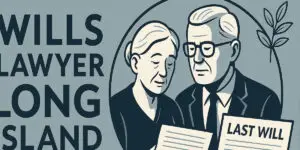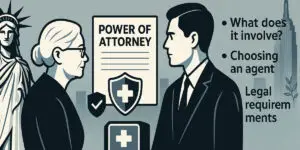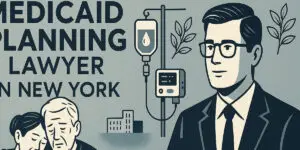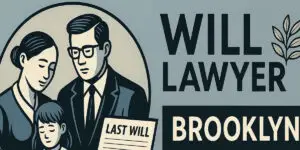Living Trusts
In New York, you can earn enough to pay the bills and trust to stay away from probate any resource you own-land, financial balances, vehicles, etc. You want to make a trusted archive, naming somebody to take over as legal administrator after your passing. Then, at that point, you should move responsibility for property to yourself as the legal administrator of the trust. Whenever everything is done, the trust conditions will constrain the property. At your demise, your replacement legal administrator will want to move it to the trust recipients without probate court procedures.
Joint Ownership
Assuming you own property with another person, and this possession incorporates the right of survivorship, then, at that point, the enduring proprietor naturally claims the property when the other proprietor passes on. No probate will be important to move the property. However, it will take some administrative work to show that title to the property is held exclusively by the enduring proprietor.
The property in joint tenure consequently passes to the enduring proprietors when one proprietor kicks the bucket. No probate is fundamental. Joint occupancy regularly functions admirably when couples (wedded or not) obtain land, vehicles, ledgers, or other significant property together. Every proprietor, called a joint occupant, should claim an equivalent offer in New York.
In New York, you can add a payable-on-death assignment, also known as POD, to ledgers. You control all the cash in the record. Your POD recipient has no options for the cash, and you can spend everything assuming you need. At your demise, the recipient can guarantee the cash straightforwardly from the bank without probate court procedures.
Move on-Death Registration for Securities.
New York allows you to enroll stocks and bonds in move on-death structure. Individuals generally hold investment funds thusly. Assuming you register a record in structure, the recipient you name will acquire the record naturally at your passing. No probate court procedures will be fundamental; the recipient will manage the business organization to move the record.
FAQ
1. If my spouse dies, do I get his social security and mine?
According to the surviving spouse law, you can collect all funds from your social security onto yours.
2. What is a pour-over will?
A pour-over Will is a Will written document stating the actions needed to be done through the trustee, which will be transferred to him or her. The truster is responsible for many assets to be taken care of or sent to assigned beneficiaries.
3. Who qualifies for Medicaid in NY?
Women who are pregnant or those with children over 18, seniors, and those with disabilities. Disabilities such as blindness, deafness, or physical injury are also eligible for Medicaid.
4. What is elder law?
Elder law handles long-term care, including future medical care, special needs care for those who are handicapped or mentally disabled, and estate planning for ages over 50. This type of law also handles elder abuse cases as long as there’s evidence of these sorts of cases. Elder abuse can come from family members, and the elder can approach a lawyer to report this sort of behavior to prevent manipulation of your estate plan.
5. Does transfer on death avoid probate?
The transfer of death only makes the probate process much more difficult by having you provide additional details and the reason for the transfer. This makes the process longer, and it’ll be more expensive if it’s longer. The only way to avoid probate is through a trust because everything would be set up or planned, especially the transfer of death.
6. Are living trusts revocable or irrevocable?
A living trust can be both, but with an irrevocable trust, you cannot change anything that’s been documented unless you discuss the changes with all beneficiaries and the court.
7. If my spouse dies, do I get his social security and mine?
Because of the laws of Estate Planning, there’s something labeled the surviving spouse clause, where if one spouse dies, the surviving spouse gets his or her assets. The only assets not provided would be government funds that the spouse still owes or would lose the entire thing because of labeled ownership unless there’s a Will stating rights to owning these finances.
8. Why do I need an elder law attorney?
The only reason you should have an elder law attorney is to have a lawyer to care for cases related to future needs leading to promising medical care that can protect yourself and your assets, including your estate. An elder law attorney can also protect you from elder abuse that you can report to your lawyer and court.
9. What happens if you die intestate?
Who’s ever married to you or related to you by blood gets your inheritance through the surviving spouse gets it all unless the Will or trust says differently.
10. How long can you receive unemployment in NY?
In NY, you can collect unemployment for 26 weeks, but with the pandemic, it can go as long as this draws out.









